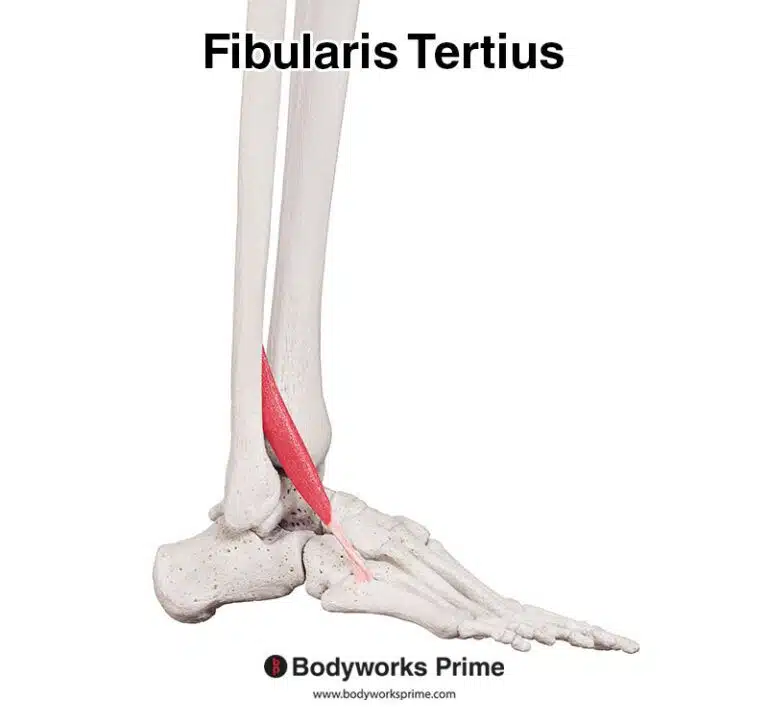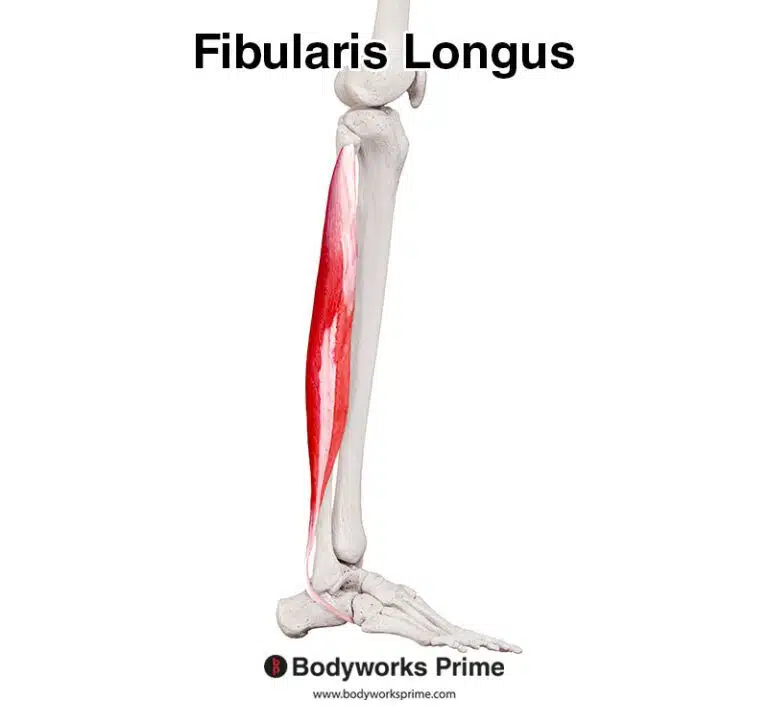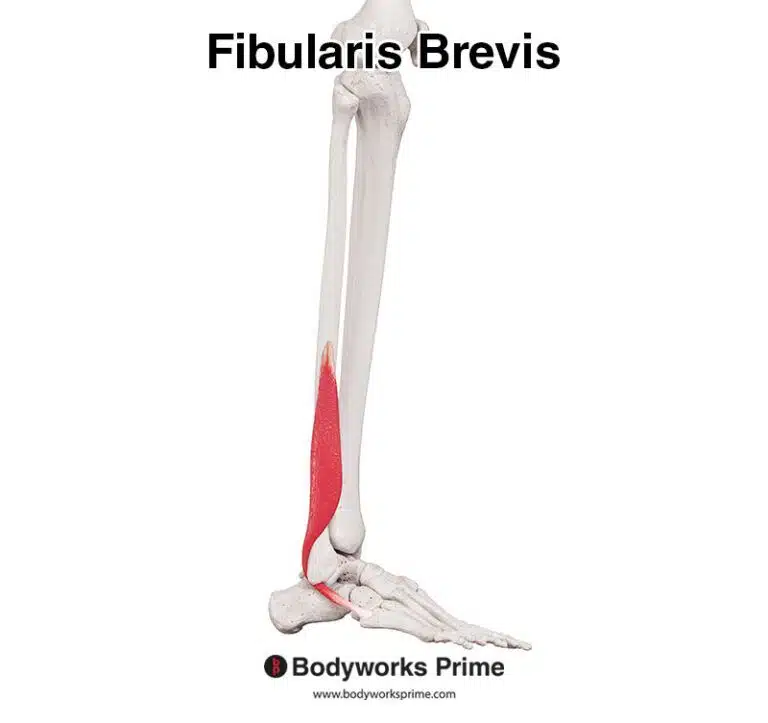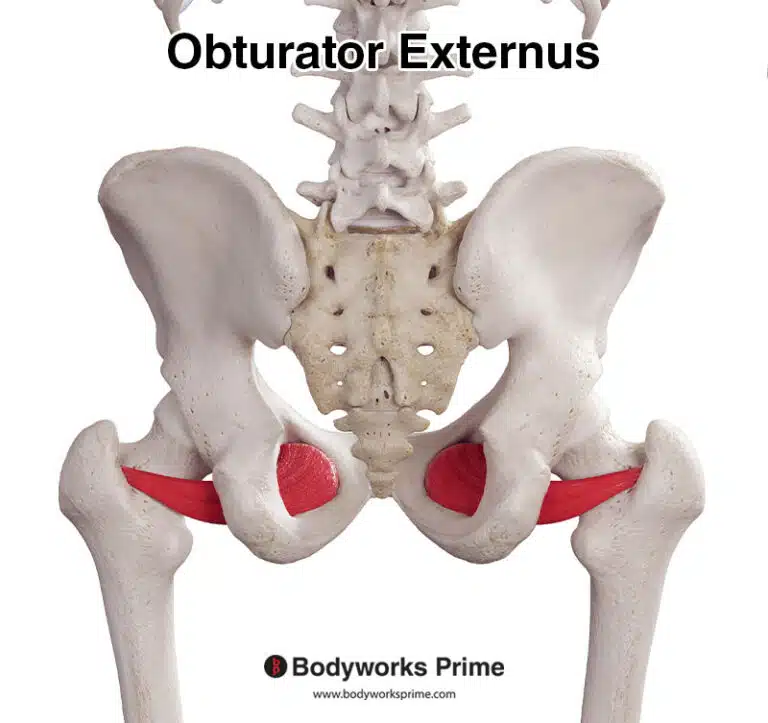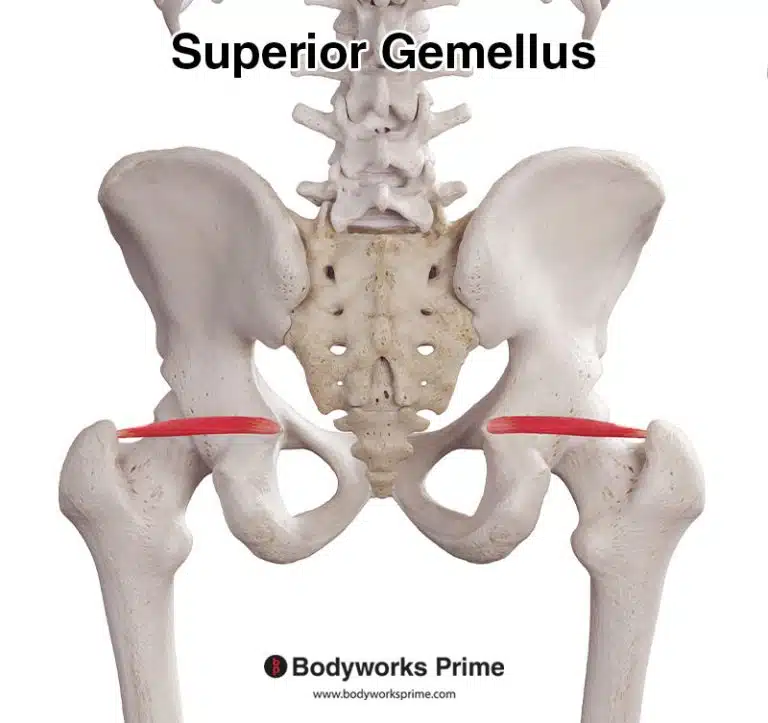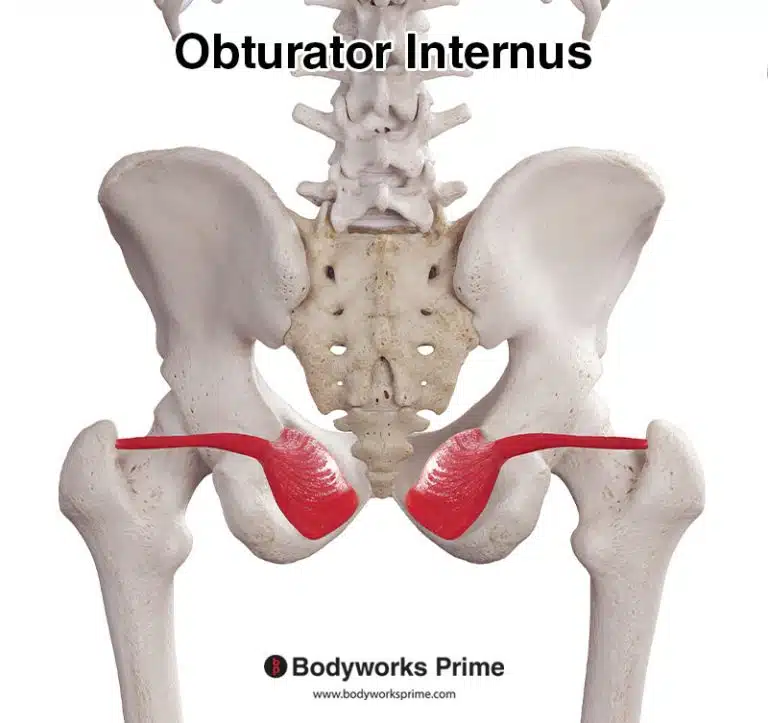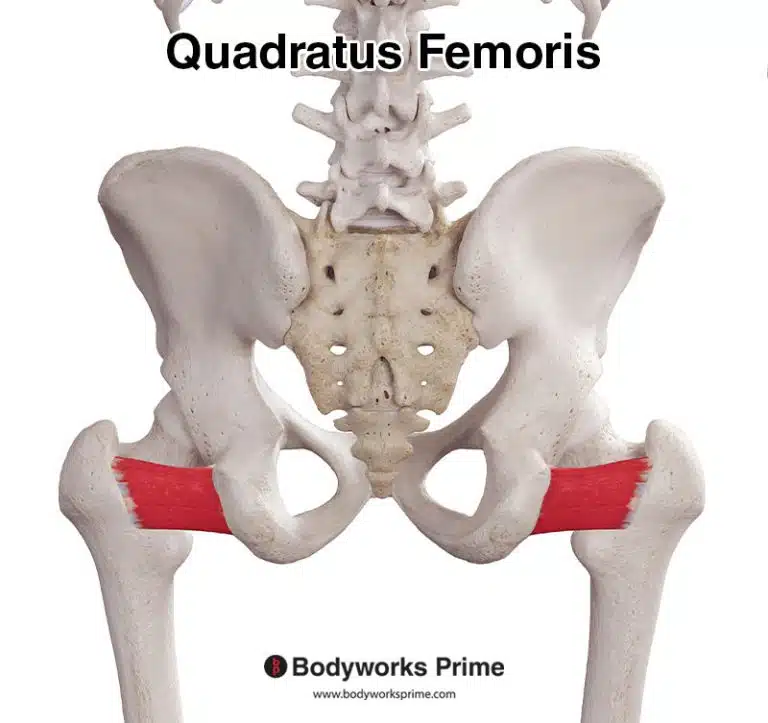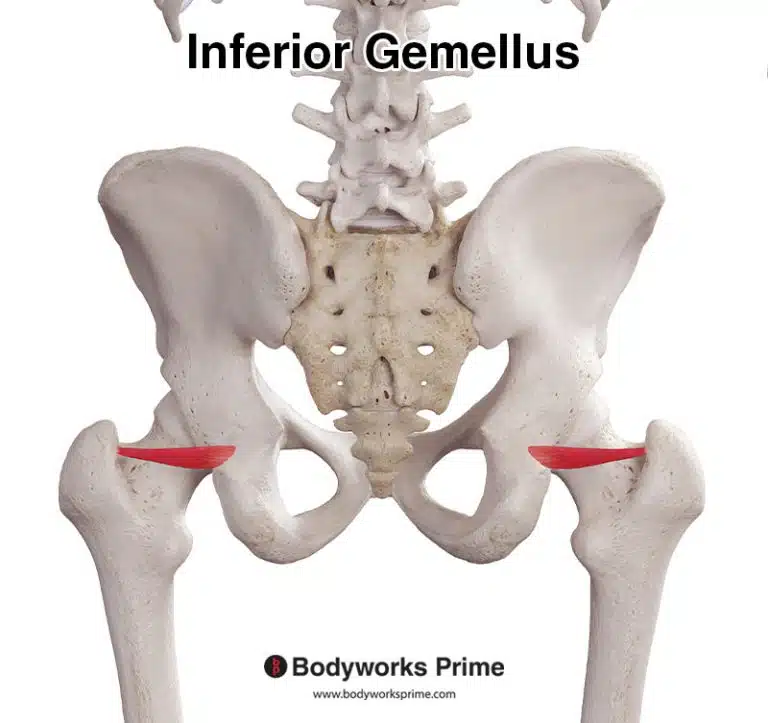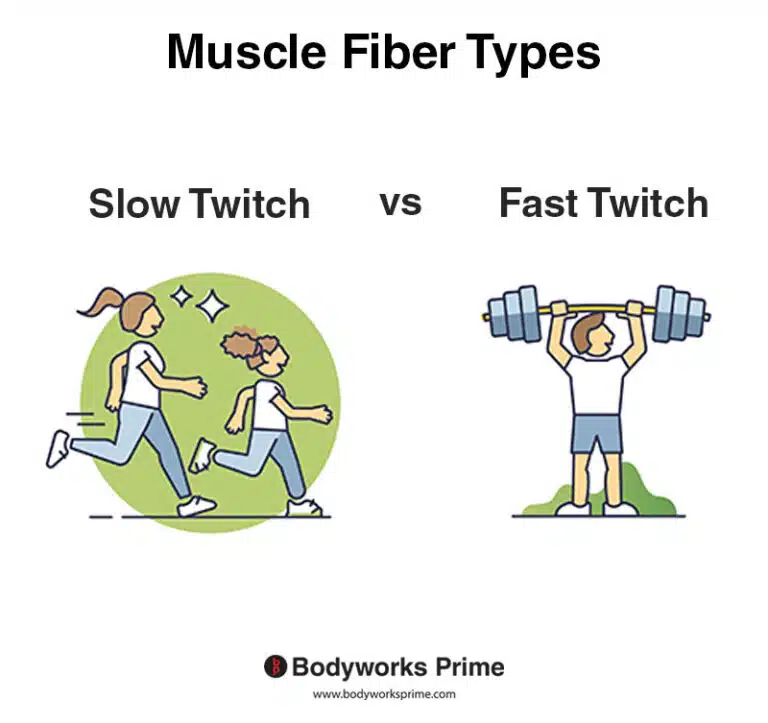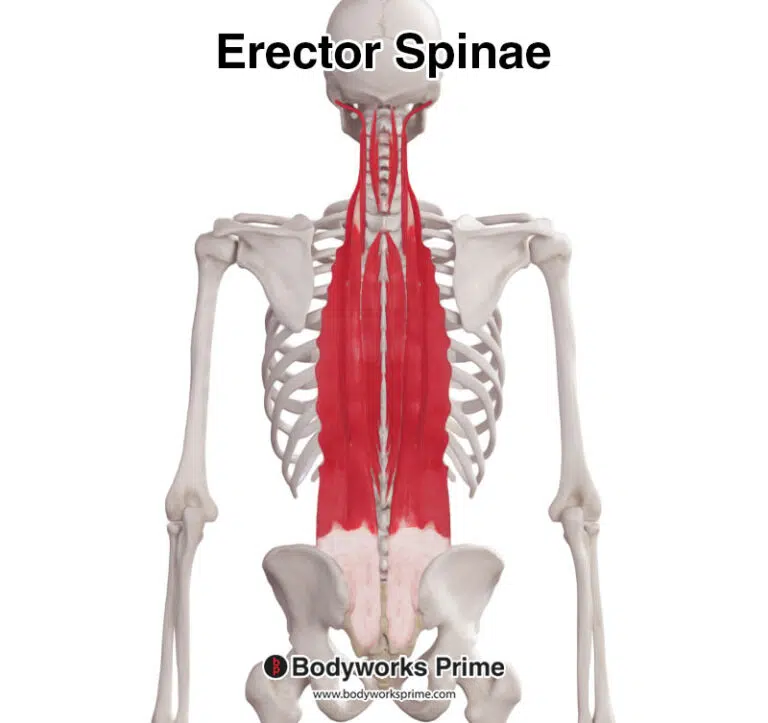| Origin | Subscapular fossa |
| Insertion | Lesser tubercle of humerus |
| Action | Internal rotation of the shoulder Stabilisation of glenohumeral joint Can very weakly assist in shoulder adduction |
| Nerve | Upper & lower branches of the subscapular neve (C5, C6, C7) |
| Artery | Subscapular artery |
Location & Overview
The subscapularis muscle, as its name suggests, is positioned beneath the scapula (shoulder blade). This somewhat triangular shaped muscle is the largest and strongest among the four rotator cuff muscles, which also include: the supraspinatus, infraspinatus, and teres minor. A useful way to remember the rotator cuff muscles is by using the mnemonic ‘SITS’. The rotator cuff muscles perform the important role of stabilising the glenohumeral joint. The glenohumeral joint is where the head of the humerus sits inside the glenoid cavity. The glenoid cavity is the ‘socket’ where the head of the humerus fits [1] [2] [3] [4].
Though the subscapularis is less prone to tears compared to other rotator cuff muscles, the subscapularis can still be affected by tendinopathies or partial tears. In most cases, non-operative treatment is preferred (such as physiotherapy), but surgical intervention may be necessary if conservative management is unsuccessful or in the case of full-thickness tears [5] [6].
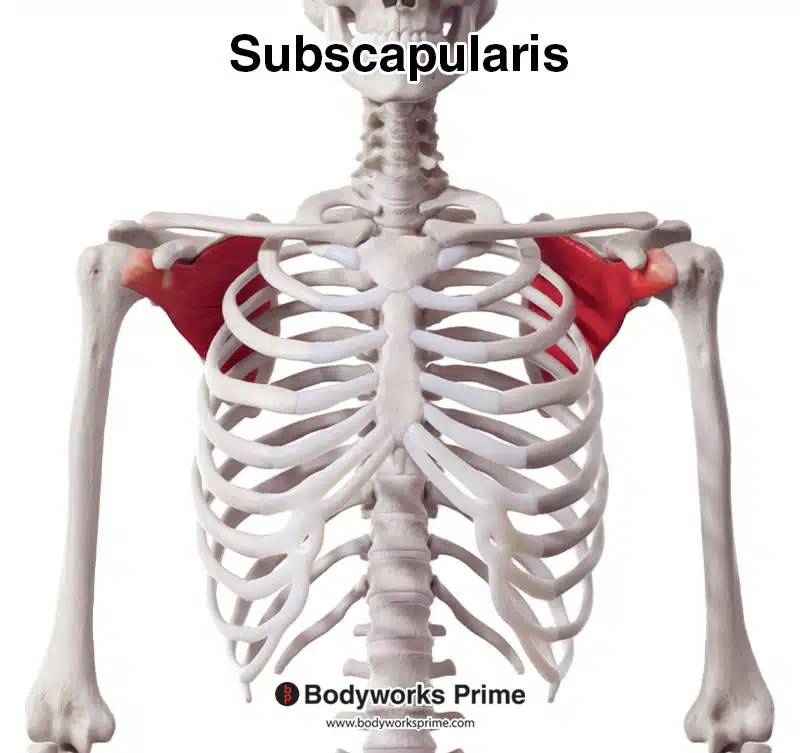
Here we can see the subscapularis muscle from an anterior view.
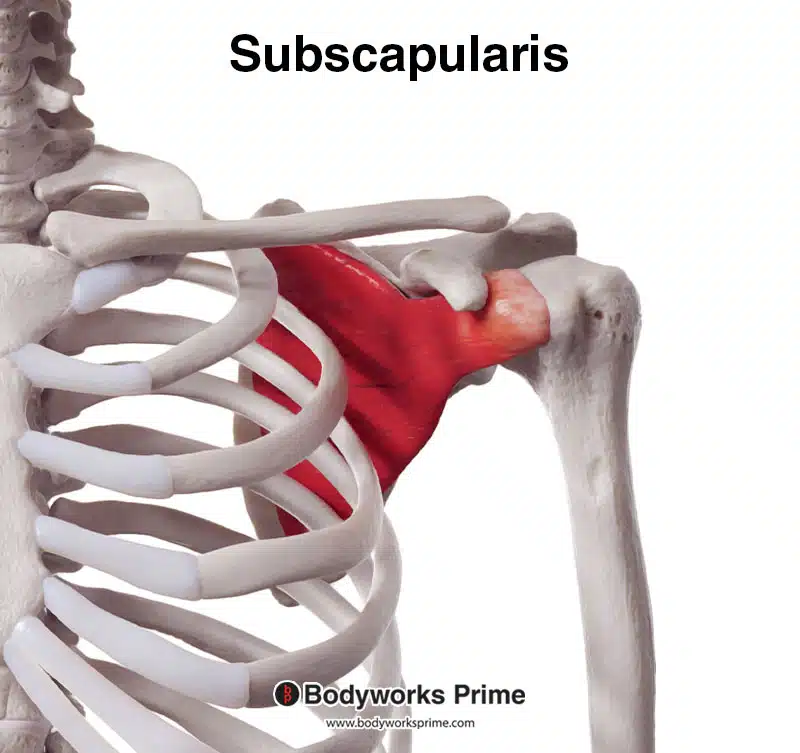
Here we can see a close up of the subscapularis muscle from an anterior view.
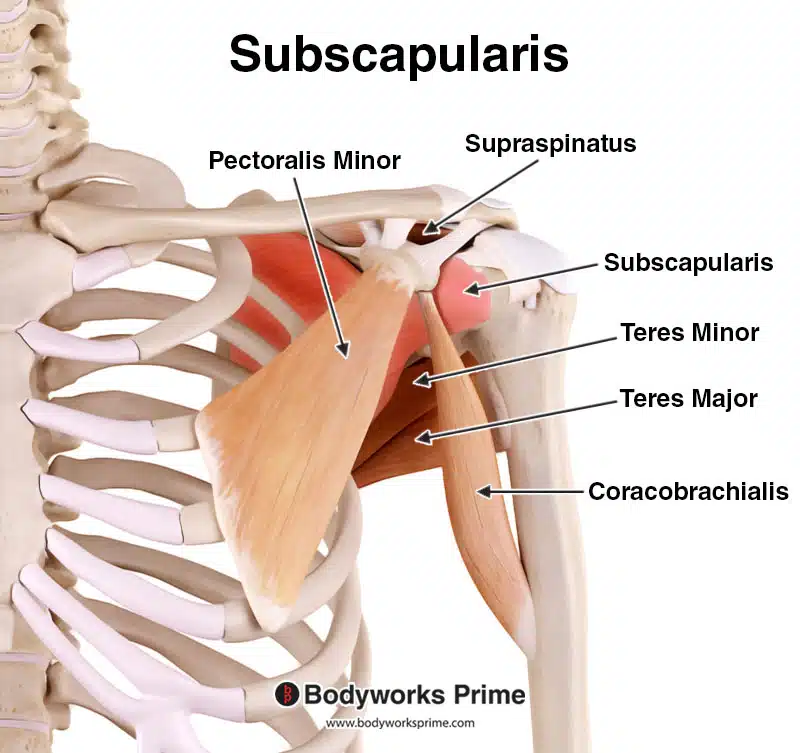
Here we can see the subscapularis muscle muscles highlighted in red amongst other neighbouring muscles.
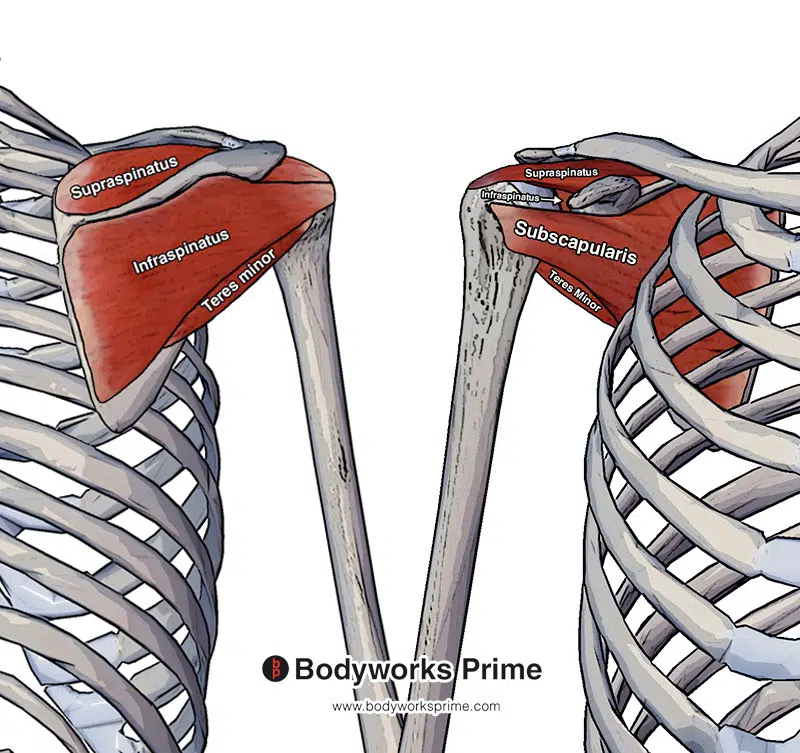
Pictured here we can see all four of the rotator cuff muscles: the supraspinatus, infraspinatus, teres minor and subscapularis. The left side of this picture is from a posterior view (the back) and the right hand side is from an anterior view (the front).
Origin & Insertion
The origin point of the subscapularis muscle is located at the subscapular fossa. The subscapular fossa is a broad and concave surface located on the anterior side of the scapula. This part of the scapula faces towards the body’s ribcage. The surface of the subscapular fossa is marked by several longitudinal ridges, and between these ridges are shallow grooves. These structures provide a point of attachment for the subscapularis muscle, which spans across the fossa. After originating here, the subscapularis continues laterally, transitioning into a tendon that inserts on the lesser tubercle of the humerus, which is located at the front of the joint capsule. Some fibres also extend to the greater tubercle of the humerus and the bicipital groove [7] [8] [9] [10].
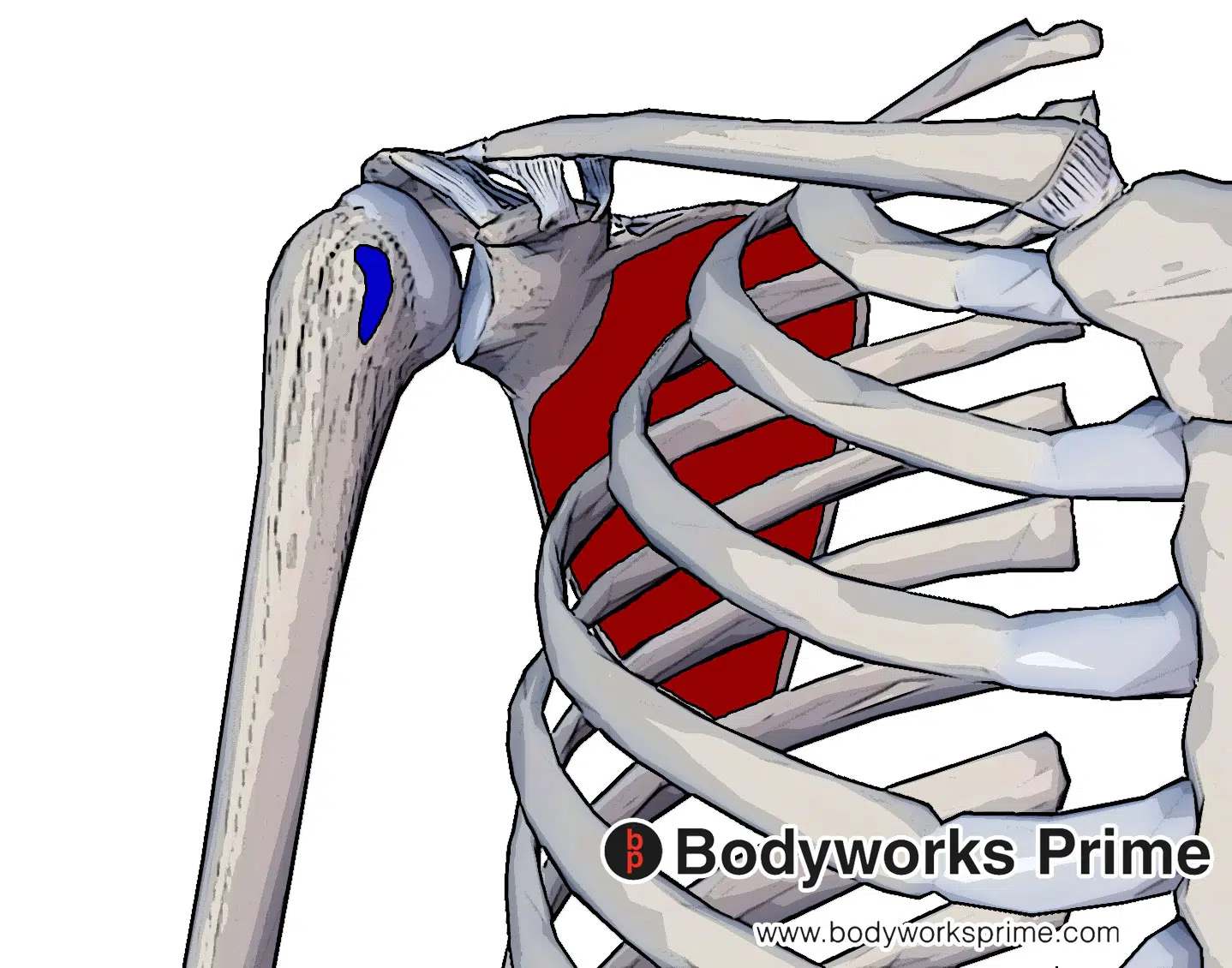
The subscapularis originates at the subscapular fossa (marked in red) and inserts at the lesser tubercle of humerus (marked in blue).
Actions
The primary action of the subscapularis is medial (internal) rotation. It is the only rotator cuff muscle able to perform medial rotation. In some positions, it can also assist very weakly in adduction of the humerus at the shoulder joint. The subscapularis also assists the other rotator cuff muscles in stabilisation of the humerus in the glenohumeral joint [11] [12] [13] [14].
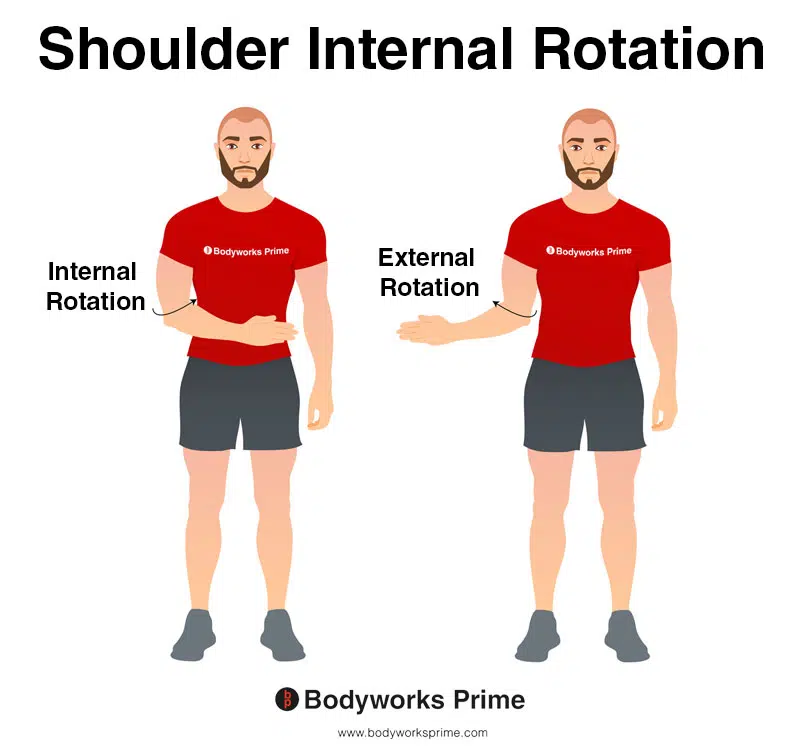
This image shows shoulder internal rotation. Internal rotation is when the arm is rotated inward toward the centre of the body, causing the hand and forearm to move towards the body’s midline. The opposite of this is external rotation, which is when arm is rotated outward away from the centre of the body, moving the hand and forearm away from the body’s midline. Internal rotation is also known as medial rotation and external rotation is also known as lateral rotation. The primary action of the subscapularis muscle is internal rotation.
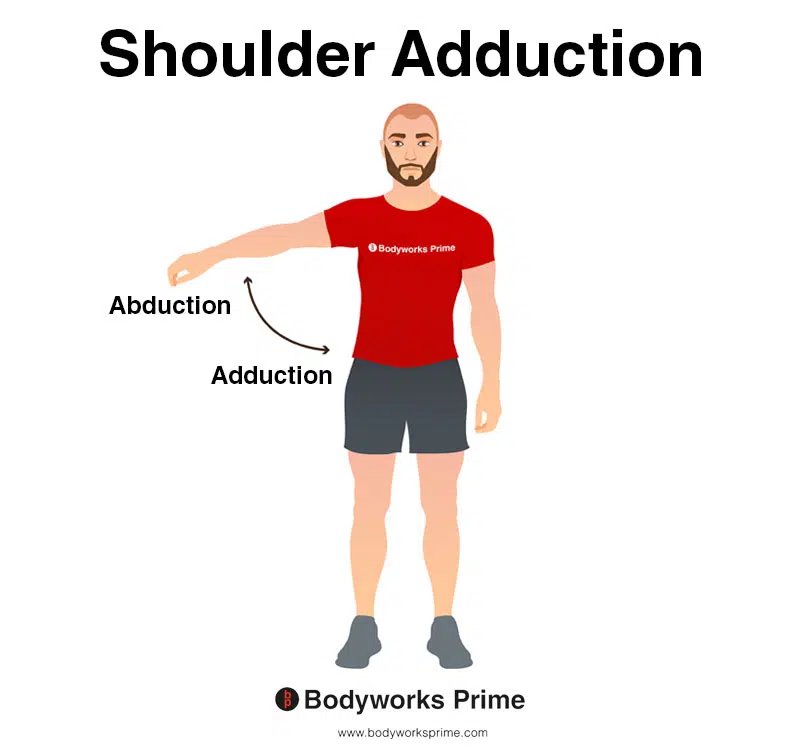
This image shows shoulder adduction. Adduction is where the arm is brought towards the midline of the body, reducing the angle between the arm and the torso. The opposite of adduction is abduction. Abduction occurs as the arm is moved away from the midline, increasing the angle between the arm and the torso. In some positions, the subscapularis can also assist very weakly in adduction of the humerus at the shoulder joint.
Innervation
The subscapularis muscle is innervated by the upper and lower subscapular nerves, which branch off from the posterior cord of the brachial plexus. These nerves arise from the spinal nerve roots of C5 to C7, and transmit nerve signals between the subscapularis muscle and the central nervous system [15] [16].
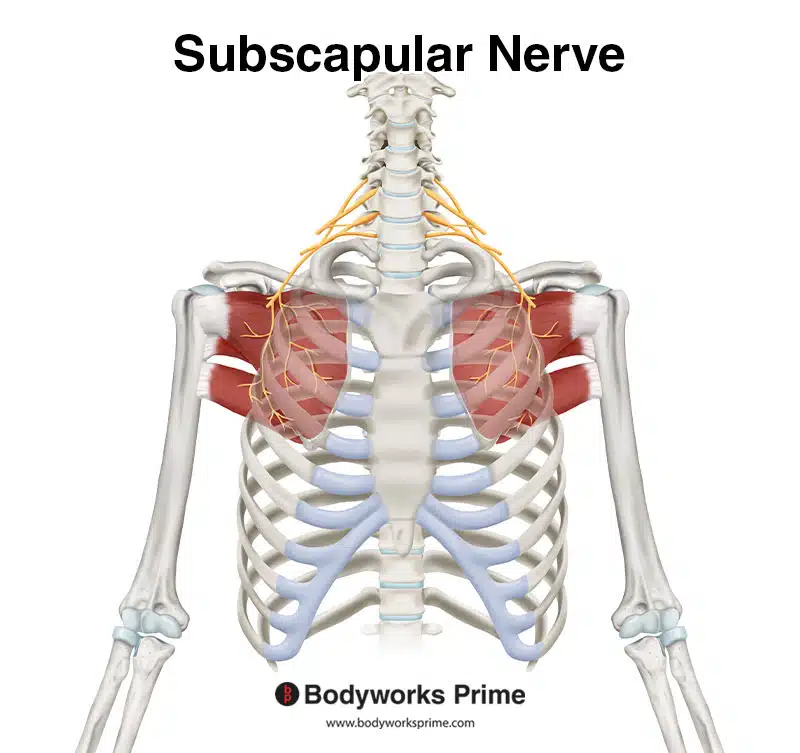
Here we can see the subscapular nerve, which innervates the subscapularis from the nerve roots of C5, C6, and C7.
Blood Supply
The subscapularis muscle’s blood supply primarily comes from the subscapular artery, a branch of the axillary artery. This artery ensures that the muscle receives adequate oxygen and nutrients for optimal functioning [17] [18].
Want some flashcards to help you remember this information? Then click the link below:
Subscapularis Flashcards
Support Bodyworks Prime
Running a website and YouTube channel can be expensive. Your donation helps support the creation of more content for my website and YouTube channel. All donation proceeds go towards covering expenses only. Every contribution, big or small, makes a difference!
References
| ↑1, ↑5, ↑8, ↑12, ↑18 | Moore KL, Agur AMR, Dalley AF. Clinically Oriented Anatomy. 8th ed. Philadelphia: Lippincot Williams & Wilkins; 2017. |
|---|---|
| ↑2, ↑9, ↑13, ↑16 | Standring S. (2015). Gray’s Anatomy: The Anatomical Basis of Clinical Practice, 41st Edn. Amsterdam: Elsevier. |
| ↑3, ↑10, ↑14, ↑15, ↑17 | Maruvada S, Madrazo-Ibarra A, Varacallo M. Anatomy, Rotator Cuff. [Updated 2023 Mar 27]. In: StatPearls [Internet]. Treasure Island (FL): StatPearls Publishing; 2023 Jan-. Available from: https://www.ncbi.nlm.nih.gov/books/NBK441844/ |
| ↑4 | McCausland C, Sawyer E, Eovaldi BJ, et al. Anatomy, Shoulder and Upper Limb, Shoulder Muscles. [Updated 2022 Aug 8]. In: StatPearls [Internet]. Treasure Island (FL): StatPearls Publishing; 2023 Jan-. Available from: https://www.ncbi.nlm.nih.gov/books/NBK534836/ |
| ↑6, ↑7, ↑11 | Aguirre K, Mudreac A, Kiel J. Anatomy, Shoulder and Upper Limb, Subscapularis Muscle. [Updated 2022 Aug 30]. In: StatPearls [Internet]. Treasure Island (FL): StatPearls Publishing; 2023 Jan-. Available from: https://www.ncbi.nlm.nih.gov/books/NBK513344/ |
